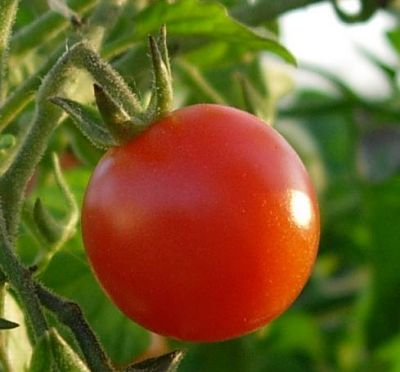Inducing immunity in tomatoes

Fruit3
By tooony (Own work) [GFDL (http://www.gnu.org/copyleft/fdl.html), CC-BY-SA-3.0 (http://creativecommons.org/licenses/by-sa/3.0/) or CC BY-SA 2.5-2.0-1.0 (http://creativecommons.org/licenses/by-sa/2.5-2.0-1.0)], via Wikimedia Commons
Plants, like animals, have developed immune systems that can recognise and respond to attacks by alien organisms. Beneficial soil-borne microorganisms such as rhizobacteria and Trichoderma species can induce a similar form of systemic immunity called induced systemic resistance (ISR).
A wide range of plant pathogens can be controlled through ISR, which
offers a useful tool for the development of long-lasting and
environmentally friendly crop protection strategies. However, the vast
majority of advances in understanding the plant immune signalling
network have been conducted using the model organism Arabidopsis.
Information regarding the immune systems of crop plants has been limited. Therefore, the EU-funded INDURESTOM (Global and local food chain assessment: A multidimensional performance-based approach) project was established to apply Arabidopsis-derived molecular knowledge on an economically important species, the tomato.
The project's main aim was to understand the genetic control of the plant's defence-related processes, which underlie the interaction of the tomato with beneficial microorganisms that induce resistance. Different bioassays and molecular techniques were used to show that Trichoderma ISR was able to protect tomato plants against different leaf pathogens. This was similar to ISR triggered by beneficial rhizobacteria in Arabidopsis shots.
Trichoderma were also found to be effective in protecting against herbivores, suggesting that Trichoderma has great potential as a low-input form of crop protection. Moreover, it was shown that Trichoderma can protect tomato roots against attack by nematodes, demonstrating the huge potential of this beneficial fungus as a biocontrol agent.
Researchers found salicylic acid and jasmonic acid hormonal pathways play a key role in signalling in ISR as well as regulating the direct interaction between Trichoderma and the plant root. INDURESTOM also revealed that besides root colonisation, volatile organic compounds released by Trichoderma can induce systemic resistance in Arabidopsis and tomato shoots.
Results from INDURESTOM have revealed key elements in the defence signalling pathways induced by Trichoderma in tomatoes. This knowledge will contribute to crop protection and improvement by exploiting natural beneficial organisms capable of boosting plant defences.
published: 2015-08-06

